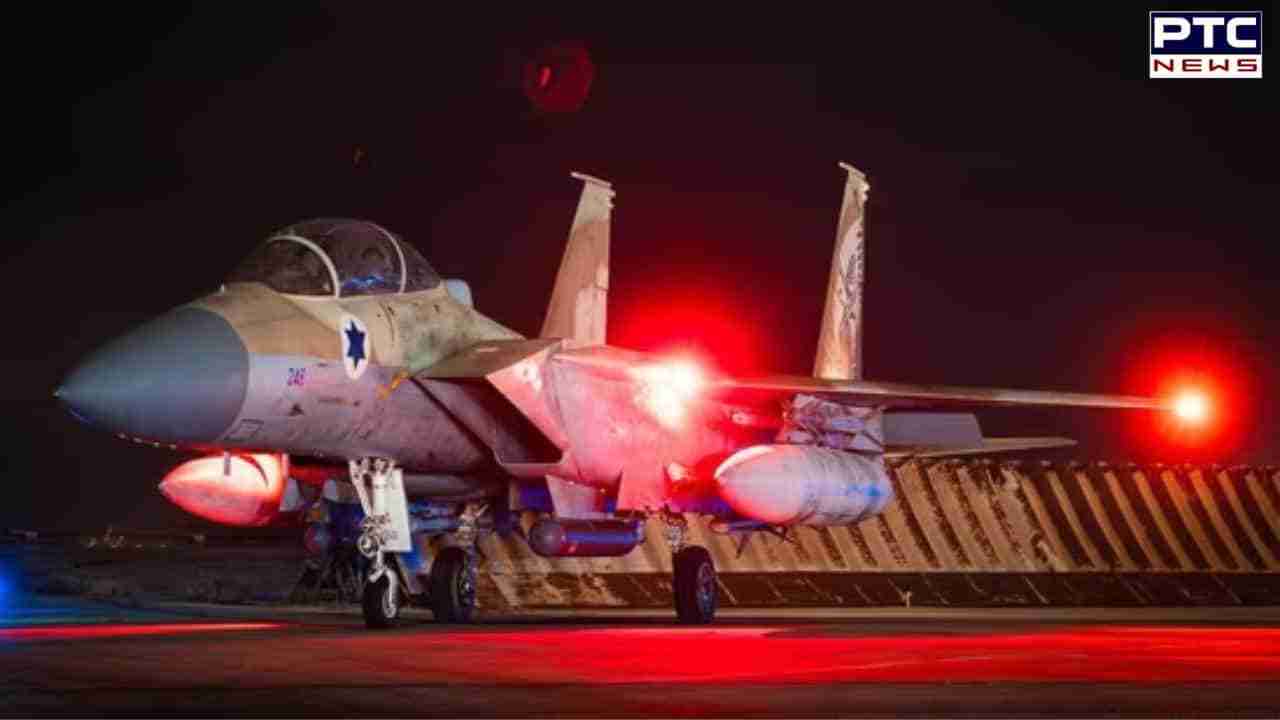

Israel considers counterattack on Iran; US denies prior notification of assault
PTC News Desk: In the wake of Iran's drone and missile assault, Israeli authorities are deliberating a spectrum of retaliatory measures, ranging from immediate strikes to exercising restraint. Concurrently, a senior official from the United States refuted Iran's assertion of providing a 72-hour warning before the aerial bombardment.
The simmering tensions in the Middle East have escalated dangerously, teetering on the edge of a full-blown conflict as Iran and Israel engage in a perilous tit-for-tat. The recent escalation traces back to Iran's substantial drone and missile strike on Israel on April 13, which was purportedly in retaliation to an Israeli strike on its embassy compound in Syria.
-min_26e6bed0d3a05ef8ba449da222005e50_1280X720.webp) Iran's Foreign Minister, Hossein Amirabdollahian, claimed that his country had issued a 72-hour notice to neighboring nations and the United States prior to the attack. However, a high-ranking official within President Joe Biden's administration refuted this claim, stating that Washington had not received any such warning.
Iran's Foreign Minister, Hossein Amirabdollahian, claimed that his country had issued a 72-hour notice to neighboring nations and the United States prior to the attack. However, a high-ranking official within President Joe Biden's administration refuted this claim, stating that Washington had not received any such warning.
Here's a breakdown of the latest developments:
1. Turkish, Jordanian, and Iraqi officials assert that Iran had indeed provided advance notice of the strike on Israel, extending the warning to neighboring countries and the United States.
2. Nonetheless, a senior official from the Biden administration, speaking to Reuters, dismissed these assertions, contending that Tehran did not communicate any warning to Washington. The official alleged that Iran only reached out to the US after the attack was underway.
“Even while under attack from Iran, we have not lost sight—not for one moment—of our critical mission in Gaza to rescue our hostages from the hands of Iran’s-proxy Hamas.”
Listen to IDF Spokesperson RAdm. Daniel Hagari’s full statement: pic.twitter.com/DfZamaBwU5 — Israel Defense Forces (@IDF) April 14, 2024
3. The Israel Defense Forces (IDF) have presented a spectrum of military response options to the government led by Benjamin Netanyahu in the aftermath of the Iranian assault. These options span from immediate strikes to exercising restraint.
4. Rear Admiral Daniel Hagari, a spokesperson for the Israeli military, emphasized that Israel remains on high alert following the attack, with operational plans for both offensive and defensive actions already sanctioned.
5. At the United Nations, Iran's actions were met with widespread condemnation and stern reproach. US Ambassador Robert A Wood warned Tehran of repercussions should it continue targeting Israel or the US in a UN Security Council meeting held on Sunday. The UK's representative, Barbara Woodward, echoed these sentiments, condemning the Iranian attack for endangering not only Israel but also Jordan and Iraq.
-min_cc3ceacfb4fe754949ea8aa9a7745217_1280X720.webp) 6. Iran's envoy to the United Nations, Amir Saeid Iravani, defended the attack as an exercise of Iran's right to self-defense. Iravani criticized the Security Council for its perceived failure to uphold international peace and security, particularly following Israel's purported strike on an Iranian consulate in Syria earlier in the month. He asserted that Tehran had no alternative but to respond, stressing that Iran does not seek escalation or war but will retaliate against any perceived threat or aggression.
6. Iran's envoy to the United Nations, Amir Saeid Iravani, defended the attack as an exercise of Iran's right to self-defense. Iravani criticized the Security Council for its perceived failure to uphold international peace and security, particularly following Israel's purported strike on an Iranian consulate in Syria earlier in the month. He asserted that Tehran had no alternative but to respond, stressing that Iran does not seek escalation or war but will retaliate against any perceived threat or aggression.
7. Israel's ambassador to the UN, Gilad Erdan, accused Iran of violating international law and presented footage purportedly showing Israel's interception of Iranian drones near Jerusalem's Al-Aqsa mosque compound. Erdan urged the Security Council to reimpose sanctions on Iran and designate its Revolutionary Guards as a terrorist organisation, emphasising the urgency of condemning Iran and holding it accountable for its actions.
8. United Nations Secretary-General Antonio Guterres urged all parties involved to exercise utmost restraint, cautioning against further escalation of conflict in the volatile Middle East. He emphasized the critical need to defuse tensions and de-escalate the situation to prevent further destabilisation in the region.
9. Iranian President Ebrahim Raisi declared that the attack served as a lesson to Israel and vowed a "heavier and regrettable response" to any subsequent aggression against Iran's interests.
The intricate geopolitical dynamics at play underscore the fragility of the situation in the Middle East, with the potential for further escalation posing grave implications for regional stability and global security.
- With inputs from agencies
